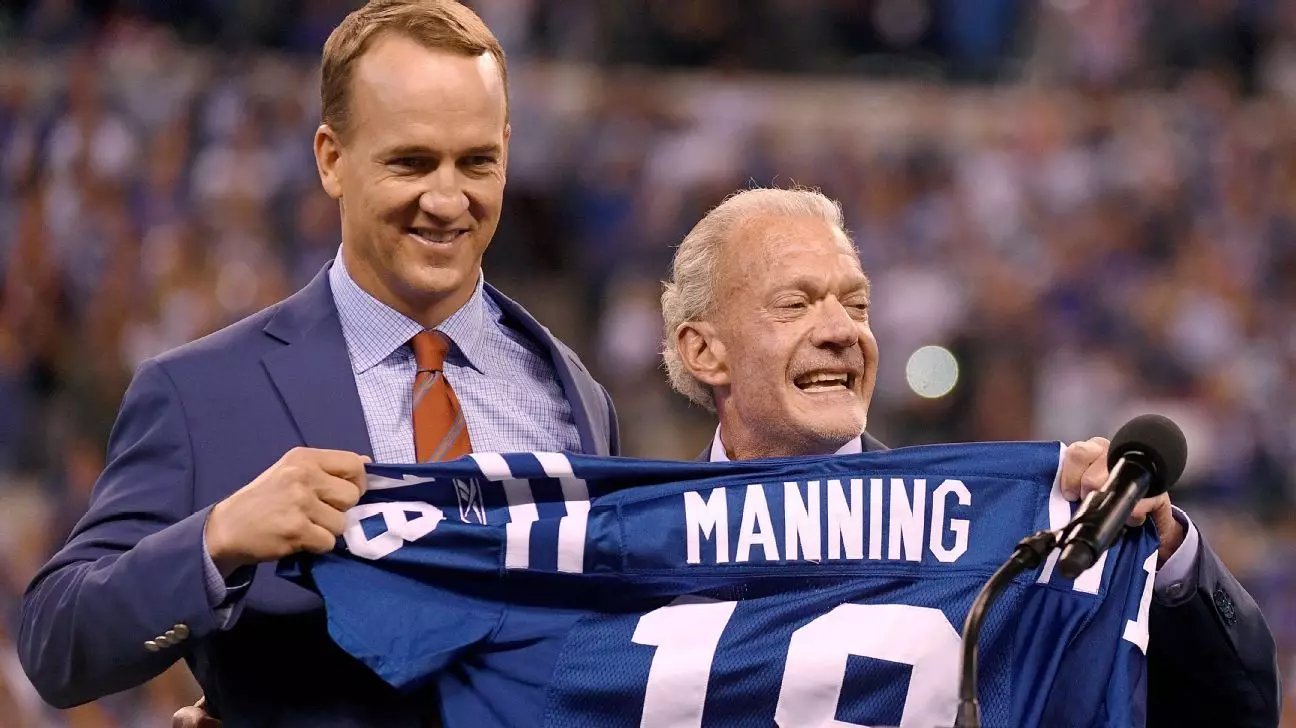When Peyton Manning arrived in Indianapolis in 1998, he joined a city whose identity was deeply entrenched in basketball and auto racing. The vibrant culture surrounding the Indy 500 and the storied history of Indiana basketball dominated the sports scene, relegating the Colts to a distant third in the pantheon of public affection. However, this hierarchy began to change under the transformative leadership of Jim Irsay, the Colts’ owner who passed away recently. Irsay’s vision and relentless drive played a pivotal role in reshaping not just the team but the entire city, fostering a deep-rooted football culture.
Manning’s reflections on this metamorphosis reveal a dynamic partnership between player and owner, one that redefined Indianapolis in the process. Irsay’s commitment to turning the team into a contender resulted in significant organizational changes that breathed new life into the franchise. By hiring Bill Polian, a seasoned executive with a proven track record, Irsay set the wheels in motion for a football renaissance. Under Polian’s guidance, the Colts began drafting key players like Edgerrin James and retaining stars such as Marvin Harrison, laying the groundwork for a new era of competitive football. This strategic investment yielded immediate results, as the Colts emerged as contenders, sparking a city-wide obsession with the team.
A Commitment to Winning
Manning credits Irsay’s dedication to victory as the linchpin of the Colts’ rise. Irsay didn’t just focus on assembling a skilled roster; he understood the profound psychological impact of success on a city’s identity. The Colts began winning, and with each victory, the enthusiasm for football surged through Indianapolis. High school football flourished, and homes filled with blue and white jerseys, reclaiming pride and passion for the game. The transformation from a basketball town to a thriving football haven is nothing short of remarkable.
Controversially, Indianapolis experienced waves of uncertainty in the early 2000s when the Colts flirted with possible relocation. Rumors swirled about moving the franchise to Los Angeles as sanctuary for a team struggling with poor attendance and television blackouts during the ‘90s. However, Irsay’s resolve to remain in Indianapolis was steadfast. He championed the construction of Lucas Oil Stadium, believing that a new venue would cement the Colts’ presence in the city and boost fan engagement. This foresight proved prescient, as the new stadium not only provided a modern home for the team but also enhanced the city’s appeal as a venue for major sporting events, including the Super Bowl and the Final Four.
The Emotional Watershed: A Parting of Ways
Peyton Manning’s relationship with Jim Irsay serves as an emotional lens through which to view both their legacies. The quarterback’s departure from the Colts in 2012 marked the end of an era; however, it also highlighted the complexity of their professional relationship. Despite the difficult circumstances surrounding their split, Manning’s gratitude towards Irsay remains evident. For Manning, the Colts were not just a platform for athletic achievement; they represented a significant chapter in his life journey that shaped who he became as a player and a person.
The sense of indebtedness Manning feels towards Irsay underscores the essential role that leadership plays in the success of any franchise. Irsay’s willingness to allocate resources and make tough decisions, such as drafting essential players and investing in stadium infrastructure, created a legacy that extended beyond immediate wins and losses. He also demonstrated an unwavering belief in the community, which helped forge a deep connection between the team and its supporters.
The Legacy of a Visionary Owner
As Indianapolis mourns the loss of Jim Irsay, it is imperative to recognize the indelible mark he left on the city and the NFL. His vision transformed not just the Colts but elevated Indianapolis into a recognized sporting city. Through his leadership, the Colts shifted from perennial underdogs to a revered force within the league, inspiring legions of fans and young athletes.
Irsay’s strategic mindset and unwavering commitment to excellence helped usher in an era that set the foundation for future success, both on and off the field. The reverberations of his leadership will continue to be felt as the city of Indianapolis embraces its identity as a football town, forever changed by Irsay’s remarkable vision.

